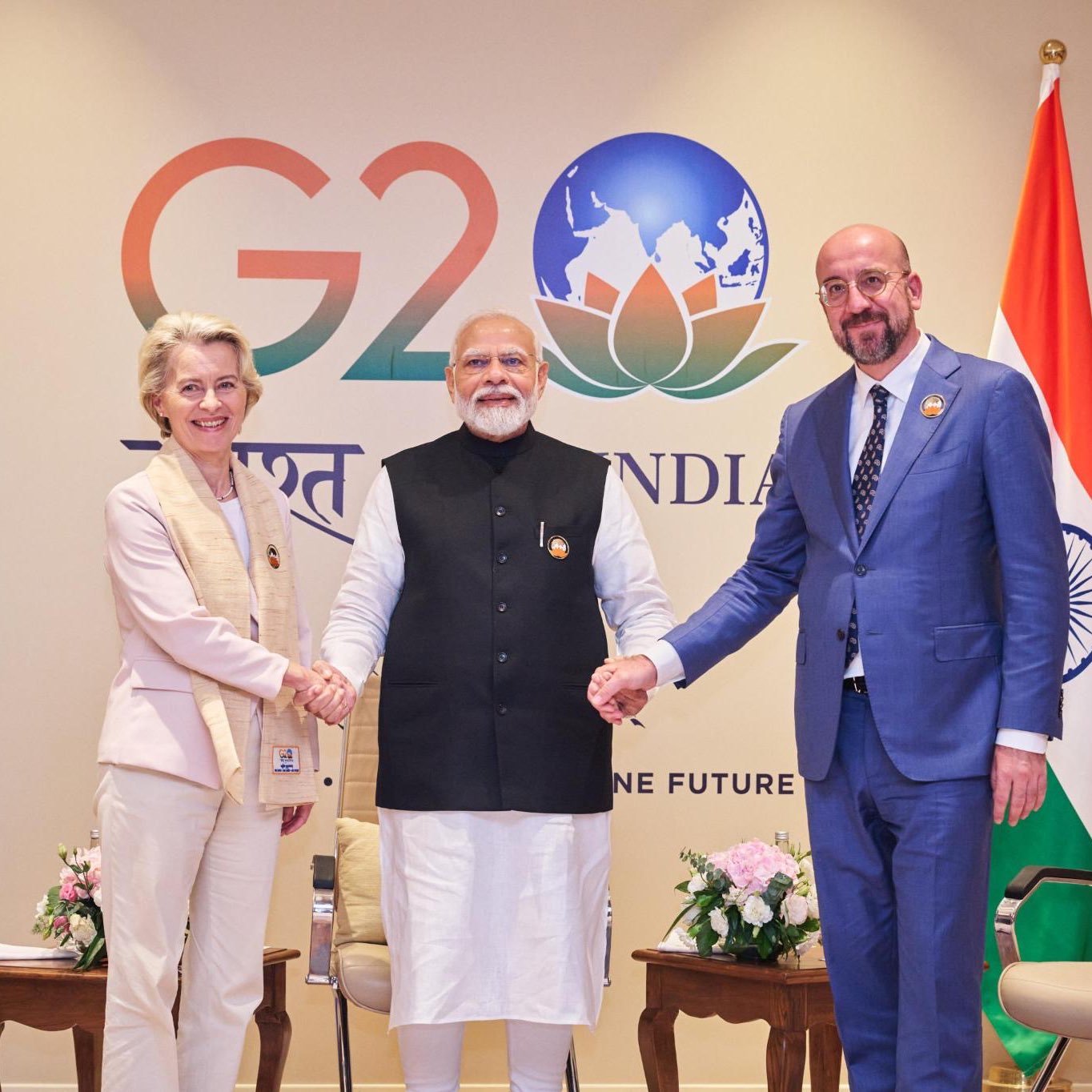The European Union, the United States, India, Saudi Arabia and the United Arab Emirates signed an agreement on Saturday at the G20 summit in New Delhi to formalise the India-Middle East-Europe Economic Corridor.
 It is a strategic project created under the auspices of the Global Infrastructure and Investment Partnership launched by US President Joe Biden and G7 leaders and designed, among other things, to rival Beijing’s heavily promoted “New Silk Roads” project.
It is a strategic project created under the auspices of the Global Infrastructure and Investment Partnership launched by US President Joe Biden and G7 leaders and designed, among other things, to rival Beijing’s heavily promoted “New Silk Roads” project.
At an event hosted by Indian Prime Minister Narendra Modi and US President Joe Biden, the five sides launched the India-Middle East-Europe Economic Corridor, which will link the three regions “through state-of-the-art connectivity infrastructure, helping to take economic relations between them to a new level and providing citizens and businesses with improved access to goods, energy and data”.
“It’s been two years since we launched the IIIP, a shared vision of the world’s leading economies to invest in the infrastructure that low- and middle-income countries need. And two years on, more and more large-scale projects are seeing the light of day. Today we are presenting two of them,” said European Commission President Ursula von der Leyen, referring to the corridor and a joint EU-US declaration that the two major transatlantic powers will upgrade a crucial trans-African corridor for critical infrastructure in sub-Saharan Africa.
New corridor will focus on rail transport
According to a European Commission statement, the new economic corridor will integrate rail lines and port connections from India to Europe via the UAE, Saudi Arabia, Jordan and Israel, leading to easier and faster transit of goods, developing energy infrastructure and enabling the production and transport of green hydrogen to all partners. It will also strengthen telecommunications and data transfers thanks to a new submarine cable connecting the regions.
“This is nothing less than a historic agreement. It will be the most direct connection yet between India, the Arabian Gulf and Europe: with a rail link that will accelerate trade between India and Europe by 40%; with a clean electricity cable and hydrogen pipeline to promote clean energy trade between Asia, the Middle East and Europe; with a high-speed data cable to link some of the world’s most innovative digital ecosystems and create business opportunities along the way. These are next-generation connections for tomorrow’s world – faster, shorter, cleaner. This corridor is much more than <just> a railway or a cable, it is an ecological and digital bridge that crosses continents and civilisations,” said Ursula von der Leyen at the event.
PGII is President Joe Biden’s and the G7’s flagship infrastructure initiative to counter China’s “New Silk Road” strategic project, and the announcement of the US and EU’s involvement comes amid the absence of Chinese President Xi Jinping from the summit in India.
The EU is a key player in the GIIP through its flagship Global Gateway programme. The Global Gateway will trigger 300 billion investment in critical connectivity projects between 2021-2027, half of which is earmarked for Africa. More than 90 projects have been identified in Africa, Latin America and the Caribbean, Asia and the Pacific and the Western Balkans.
Share on:



